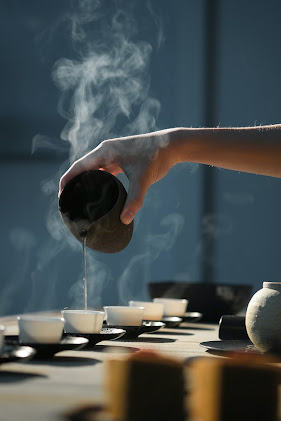
Stress is a natural adaptation reaction of the body when faced with changes in its environment.
The “stressor” agent can have different origins: psychological or physical.
Stress can be caused by: danger, a happy event, difficulties at work, the death of a loved one, worries about the future, financial worries...
This results in the secretion of a spike in cortisol, a hormone produced by the adrenal gland, and adrenaline, a neurotransmitter that causes an acceleration of the heart rate and breathing as well as an increase in blood pressure.
When stress is periodic or is renewed or even if the sources of stress increase, the body becomes exhausted and can no longer recover. With the key, possible harmful consequences on our health. This results in a series of small signs:
- A decrease in natural defences.
- Affective disorders such as anxiety or behavior (difficulty concentrating, hyper-sensitivity, nervousness, etc.).
- Physical consequences: great fatigue, behavioral problems, insomnia, eczema, muscle pain and an impact on the cardiovascular system
There are times that are more difficult than others... it's above all life, it's not always rosy. However, the impact on the course of your day and even on your whole life is preponderant of your attitude at that moment.
the 8 effective remedies to say goodbye to stress and discomfort are:
1. Smile!
The smile is a vaccine against the moment of stress.
The smile is the showcase of our emotions, the reflection of our heart and a dose of happiness
The smile calls for sympathy, relational exchanges, communication, love, a promise of friendship and more.
A smile costs nothing! Whether it's the smile of a woman or the smile of an angelic child, a simple smile brings pure joy.
The smile is very powerful on the emotions of others, but above all on oneself.
A smile, even forced, releases endorphins that reduce stress and increase happiness.
The smile encourages the emotion of joy and lowers the risk of manifestations of sadness. This allows you to relax Indeed, the nervous system recognizes this signal and releases endorphins. The feeling of well-being is immediate.
Even when you forcefully practice smiling, it stimulates the amygdala, the emotional center of the brain, which releases neurotransmitters to encourage an emotionally positive state”
Gratitude is knowing how to be grateful, to appreciate what is not material and to admit that others play a role in our emotional well-being. It is a feeling deeply linked to optimism, mental health, self-esteem, social interference and constant satisfaction. Recognition is essential to mastery and self-knowledge.
For a minute, identify all that is positive in your life. Highlighting and defining the reasons for being happy is essential. For example: Being in good physical and mental shape, having pleasant children, a loving wife or companion, having parents, having a home, having such past success, having such a friend...
It is also possible to take a few steps around the house or office and appreciate what you see. For example, a perfect flower, a bird on a branch, spotting a detail on a painting, …
Grateful people feel better in their lives, with their friends, their family, their community and with themselves. They have more hope, optimism, self-esteem and do better in school and at work.
Gratitude builds indulgence and builds stronger relationships. It is linked to healthier lifestyles, good sleep or a robust immune system and it decreases our negative tendencies such as envy, depression, feelings of loneliness and materialism.
Gratitude maintains hope, endurance and helps to recover from a crisis. It can help us deal with emotions related to loss and stress.
Gratitude can amplify the production of neurochemicals. An optimistic mind releases the happiness hormones oxytocin, dopamine, and serotonin.
Since the 1970s, several scientific studies, particularly in the United States and Canada, have demonstrated the effectiveness of meditation:
- Depression, by changing the reports of people who have negative stories about themselves and others, they can again experience positive feelings such as curiosity, jealousy, enthusiasm...
- Reduce anxiety and stress, above all stop trying to get rid of stress at all costs, learn to cope and nfeed the emotions
Practiced regularly, meditation can help to live more without being dominated by emotions or the past, the future, or the judgments we make about ourselves and our environment.
A person adept at meditation generates a space, which allows him to choose his way of responding to the annoyances of everyday life and to maintain positive behaviors favorable to his well-being.
Just five minutes of meditation can change your state of mind.
You can do this by doing some deep breathing, focusing on the sensations.
This exercise immediately gives a feeling of relaxation, calms anxiety and improves mood.
Morning meditation is valuable because we are not yet distracted by all the daily activities. In the evening, meditation is beneficial for digesting the day and falling asleep more easily.
Music acts directly on the cerebral hemispheres with a direct consequence on the human body.
Listening to soft or suave music, blood pressure decreases, heart rate slows, breathing becomes deeper and more constant.
Already in the mother's womb, the fetus who is made to listen to music feels soothed or just like an infant, to whom we sing a nursery rhyme can stop crying.
Several scientific studies have revealed that music reduces cortisol, the stress hormone, and the consequence is even more beneficial if the rhythm is slow and regular.
The process has even been tested in the pre-anesthetic phase of surgery to ease the anxiety of people about to undergo surgery.
It's proven: physical activity is one of the best ways to fight stress.
Indeed, studies show a strong link between exposure to nature and a decrease in cortisol levels, a stress-related hormone.
Being outdoors also boosts endorphin levels and the production of dopamine, the hormone that contributes to mood.
Playing outside also allows you to escape and take a step back from your own worries and those of others.
The beneficial impact of nature on mental health is scientifically recognized.
According to some studies, outdoor activities are an effective way to prevent depression.
Some of these studies even suggest that moving in the natural environment can reduce ruminations – the rehashing of past negative thoughts or emotions – which is associated with the risk of depression.
Nothing like a bath in the fresh air in the light of day to fight against stress.
Studies have shown that people who exposed themselves to the most sun slept better, were more lively and inventive and were less susceptible to depression than those who did not.
Walk to work every day and breathe deeply.
Physical contact improves the mood, in fact, they trigger the good circulation of the hormone oxytocin, which helps to reduce stress.
If you don't have anyone on hand to cuddle, you can also massage your face, neck, hands, etc. The benefits will be the same.
7. Drink an anti-stress herbal tea
We advise you to choose stress-resistant relaxing plants from organic farming to avoid pesticide residues and this like:
-LEMON BALM
Lemon balm, a herbaceous plant of the Lamiaceae family, is recognized by the European Commission and ESCOP for its virtues against the signs and frequent inconveniences in the event of stress.
To be consumed as an infusion for 2 to 3 weeks at the rate of 3 cups per day.
-THE TULSI
Also known as holy basil, tulsi is a plant native to India.
It is a plant from the Ayurvedic tradition that helps fight stress and spiritual exhaustion.
Its leaves are used in relaxing infusions at the rate of one teaspoon per cup.
We drink 2-3 cups a day.
-THE POPPY
You can recognize poppies by the delicate red flowers that bloom in the fields in the spring.
Derived from the papaveraceae family, a cousin of the poppy, the dried poppy is used in an emotion-regulating infusion that soothes states of stress.
-THE HONEYBUSH
Originally from South Africa, honeybush is a plant that helps the body to adapt and fight against stress.
Plus, it's caffeine-free and rich in antioxidants.
The leaves are used in infusion.
-THE GINSENG
The roots of ginseng are grown in Korea and China.
This plant belongs to the Araliaceae family used in Chinese tradition to improve states of stress through its calming action and qualities.
The WHO recognizes its traditional use to motivate people with disabilities.
The dried roots are used as a decoction.
-THE PASSION FLOWER
This passion flower from Mexico is intended to fight anxiety and relieve stress.
The infusion of passionflower has calming and sedative properties, which help to reduce the inconveniences associated with stress.
-HAWTHORN
Hawthorn flowers are rich in active ingredients that soothe and calm.In infusion, it is used in case of stress.
It is also a natural painkiller known to reduce palpitations.
Also, you can try Chamomile which is known for its relaxing properties, which makes it great for relieving stress.
As for green tea, it is also effective and has the ability to maintain or even lower cortisol levels in our body.
Turmeric, saffron or even cinnamon are much more than just flavored spices.
They accelerate the hormones of happiness, they can be a natural alternative in the therapy of depression and mood disorders.
Many studies show that there are also plants rich in L-dopa, a precursor of dopamine, which affects the main diseases of the central nervous system that cause us anxiety.
These spices can complement, and in some cases supplement, synthetic drugs.
-Saffron
Originating from the purple stigmas of the Crocus sativus flower, saffron is seen in traditional oriental medicine as the spice of happiness.
Already in ancient times, this spice is recommended to soothe the torments of the soul.
Beyond its effects on certain degenerative or metabolic diseases, studies have highlighted the effectiveness of its various active ingredients and its potential in depression.
Indeed, saffron would have analgesic, anti-inflammatory, antioxidant, cardioprotective and digestive properties but also neurological.
The color of Buddhist clothes directly refers to saffron, because in Eastern culture, saffron brings joy and wisdom.
-Cinnamon
In stick or ground form, cinnamon warms and stimulates nerve cells.
Rich in vitamins B1 and C, phosphorus, calcium and potassium, it is a powerful analgesic for states of anxiety, stress, hypersensitivity, depression or even depression.
Scientific studies have shown the benefits of cinnamon essential oil as a supportive treatment to improve symptoms of depression and anxiety disorders.
Its aromatic compounds will act at the hypothalamic level and have general stimulating, psychoactive and aphrodisiac effects.
Thanks to one of its active ingredients, trans-cinnamaldehyde, the essential oil of cinnamon rich in antioxidants, would strengthen the central nervous system.
This molecule would have a positive influence on depression.
The aromatic properties of cinnamon will also promote calming and comfort.
Turmeric is one of the most powerful healing foods, with over 600 health benefits.
-Rosemary
Essential in Mediterranean cuisine, rosemary provides both taste and medicinal properties.
Used since ancient times to heal the body and mind, rosemary is excellent for fighting psychic, boosting the body during overwork or depression, preventing insomnia, and soothing the nerves.
The Greeks used rosemary in the form of a crown placed on the heads of intellectuals when they had to work on an important project.
Smile in the face of difficulty, It's not stupidity or ignorance, it's strength of mind and greatness of heart.
Make these little things a real daily arsenal against gloom, stress and depression, your life can also be changed!
Have you ever tried any of them?















.jpg)




























